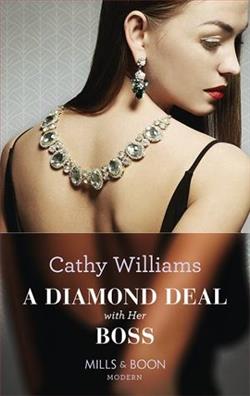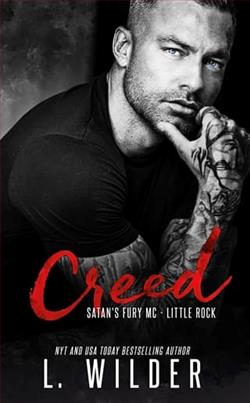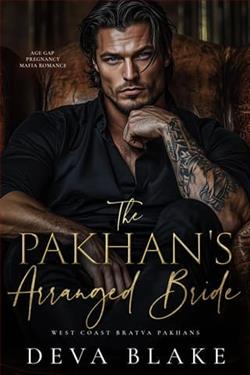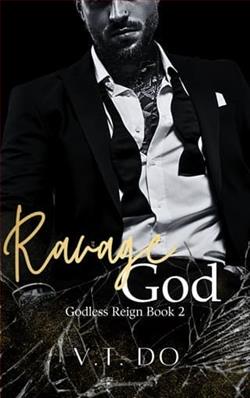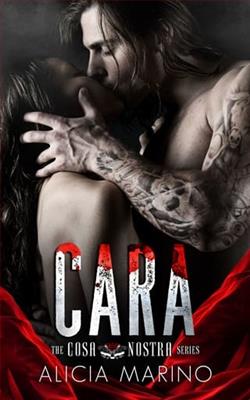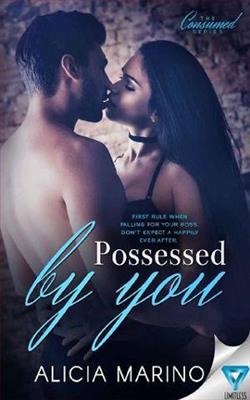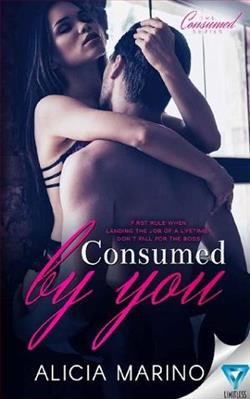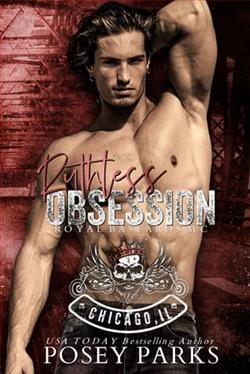Page 25 of I'm Not Yours
“No. You’ll talk me into this, I know you and I can’t resist you, and you are too much for me, and this is not right for us.”It’s not right for you, Jace, trust me on that.
He argued, I argued, I cried more, I saw tears in Jace’s dark eyes, too, then I stalked off, found a bedroom with a bed in it, and slammed the door after telling him, “Stay the hell out.”
My body was strung out, wanting Jace, my mind frazzled. I crawled under the covers and cried myself to sleep, by myself, my body rocking back and forth.
At five o’clock in the morning, I tried to sneak out the door. Through the French doors I saw Jace sitting on his deck, the sun rising like a golden ball pulled by an invisible chain from the clouds. I didn’t join him. I knew he would see me hurrying down his road to my house, but I didn’t bother to turn and wave, and he didn’t bother to call me back.
The next day I stopped by a local artist’s home studio. She lived about a mile down the road in a blue house with white trim, and had a sign out in gold lettering that said PEARL’S MOSAICS AND PAINTINGS.
When I walked in, bells chiming on the door, a woman in the other room called out, “I’ll be right with ya!”
There were paintings and mosaics, all bright, bold, flowing, and magical. One painting, about four feet tall and three feet wide, caught my eye. It was an apple tree, but tucked among the branches was a village with miniature houses and thatched roofs. Swinging wooden bridges attached one house to another. Tiny people, in traditional dress from countries all over the world, gathered under the leaves for picnics, sing-alongs, or holding hands. One boy chased a blue balloon.
The details were pure fantasy. The fall leaves on a Japanese woman’s purple kimono glowed. An Indian woman’s pink sari with gold trim floated in the wind. The plaid of three men’s Scottish kilts dropped exactly to their knees. The apple tree was a living, breathing, utopian place with stairs at the bottom of the trunk winding to a gazebo at the top, which was hung with bright white lights. A chief with a feathered headdress and moccasins played the piano.
A woman entered the studio. She had lush, thick white hair in a loose bun and a welcoming smile. Her white shirt and jeans were both covered in paint. She was beautiful. “Now, heck, you’re Ben’s daughter, Allie, aren’t you?”
“Yes, yes, I am.” I shook her hand, surprised. I shouldn’t be surprised—this home was five minutes from my dad’s, so they were neighbors—but I was. My dad did not socialize. He did not like people. He called themstupid beings posing as humans, with cardboard brains.
“I’m sorry about your dad.”
“Thank you.” I tensed up.
“Your father pushed it, by hell he did.”
I felt my mouth drop. “I’m sorry?”
“Your father, and I told him many times.” She swung a finger through the air. “He didn’t act like a father. He was a drunk pigin mud when I first met him. He was a bull with his horns down. He should have been born a slug because that’s how he was as a father, and I told him so, especially after he told me about himself in his parenting years. Inexcusable and sluggish. He was a slug.”
“Uh . . .”
“When he quit drinking the last three years, he started to talk about what a lousy father he was and he told me he didn’t think there was a worse husband on the planet.”
I felt like I’d been struck in the face with a handful of paintbrushes.
“He talked to his AA group about it, too.”
His AA group?Darned if my jaw wasn’t almost on the floor. My dad had actually admitted he was an alcoholic? He went to AA?
“I tried to get him to shape up that butt of his. I even prodded him with a pitchfork one time. Truly, I poked him in the butt, and I told him, ‘See, even when I prod your butt, Ben, you still won’t move to make amends for your cruel behavior to your daughter.’ I didn’t understand it. I’ve got six kids and fourteen grandkids and they’re over all the time, and I could not understand why he did not apologize to you and do whatever it took to make amends.”
“You knew him—”
“You bet I did, although the first two years he lived here we didn’t talk. I met him once the first year—he was a mean, slobbering, warthog drunk. He called me an old witch. We didn’t get along. But eventually I knew him backwards and forwards and inside out.” She tapped her boot. “I got him cleaned up three years ago. Told him he was an alcoholic. He argued, threw that temper tantrum of his. By golly, it didn’t scare me at all—they’re all in denial, but he had his accident, you know—”
“No, what accident?”
“Oh, that’s right. You didn’t know because he was a crappy father and out of your life. Flipped his truck late one night. He was stuck upside down like a pig hung out to slaughter. It happened right down the road in the curve where that steel goat statue stands in front of Shelby’s house. He’s a steel artist.
“Anyhow, I galloped my horse, Give Me A Shiner—that’s her name—pretty darn fast when I heard the crash, but when I saw that it was him and I smelled liquor I peered in and said to him, ‘Hello and good-bye, you pathetic drunk. You could have killed someone or knocked over a cow.’ He was trapped, hanging upside down, and I galloped away. He yelled and slurred and swore and, by God, I left him there after I told him, ‘Tonight I’m going to pray to the good Lord that wisdom will be forced into your dense head.’ ”
I scrambled to keep up with her. “You left my dad upside down, drunk, in his truck all night?”
“Sure I did. Although I think he was able to unstrap himself later. He was still flattened out, though, stuck in that crushed truck of his.”
I almost laughed. I have a mean streak when it comes to my dad.
“You gotta let drunks hit the very bottom rung of their lives, or they’re not getting better. By the time I rode back out about eight hours later, after my morning coffee, he’d made a mess all over himself in each direction. Lucky it was summer so he didn’t freeze, but he was still cold. Hungover and screwed up—that gave him a God moment, I think. Can you get much lower?”








